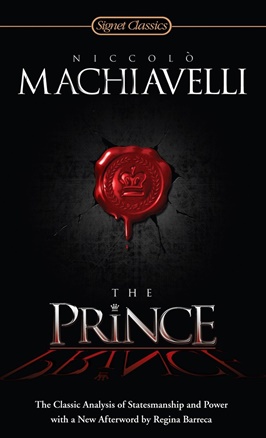In “The Prince” , Niccolò Machiavelli presents a practical guide for rulers on acquiring and maintaining political power, largely disregarding moral ideals. Written in the early 16th century, this treatise has become synonymous with pragmatic, and often ruthless, political strategy. The book outlines the qualities that a successful ruler, or “prince,” must embody to secure his position, navigate political threats, and expand his territory.

Machiavelli begins by categorizing different types of principalities and exploring the means to control them. For instance, he argues that hereditary principalities are easier to rule due to established loyalties. In contrast, newly acquired states require greater control, sometimes through force or deception. He highlights historical examples, like Alexander the Great and the Romans, to illustrate the importance of adaptability and military strength. Additionally, Machiavelli recommends eliminating the former ruling lineage to prevent rebellion.
Machiavelli famously discusses the question of whether it is better for a ruler to be loved or feared. He concludes that, ideally, a prince should be both, but if forced to choose, it is safer to be feared. However, he warns that fear should not devolve into hatred, as this could spark rebellion. He advises rulers to appear virtuous and just while exercising cunning and sometimes cruelty, using examples like Cesare Borgia, who achieved power through decisive, though ruthless, actions.
Another central theme is the role of military power. Machiavelli contends that a prince must prioritize military knowledge and rely on his own forces rather than mercenaries or allies, which he sees as unreliable. The prince’s strength and stability hinge on this self-reliance, particularly in unpredictable political climates.
In later chapters, Machiavelli addresses the role of fortune and chance in political success. He encourages rulers to be bold and proactive, arguing that fortune favors the audacious. In his view, leaders should prepare for adversity and be ready to adapt quickly to changing circumstances, thus bending “fortune” to their advantage.
The final chapter diverges from practical advice, appealing to Italy’s leaders to unify and free the nation from foreign domination, reflecting Machiavelli’s patriotic fervor. This message underscores his belief in a strong, centralized leadership as key to national stability and prosperity.
Ultimately, The Prince stands out as a landmark in political philosophy, proposing that effective leadership often requires difficult, even unethical choices. The treatise’s influence persists, and its principles continue to resonate in discussions of political strategy and realpolitik .